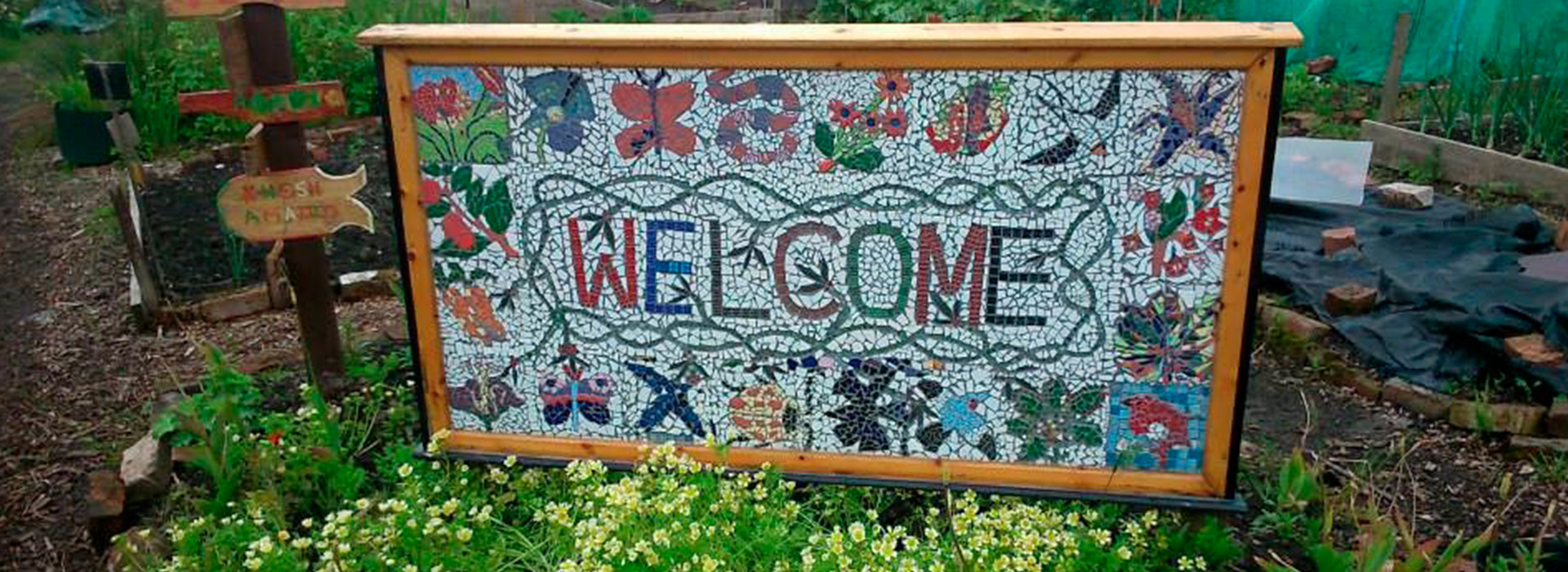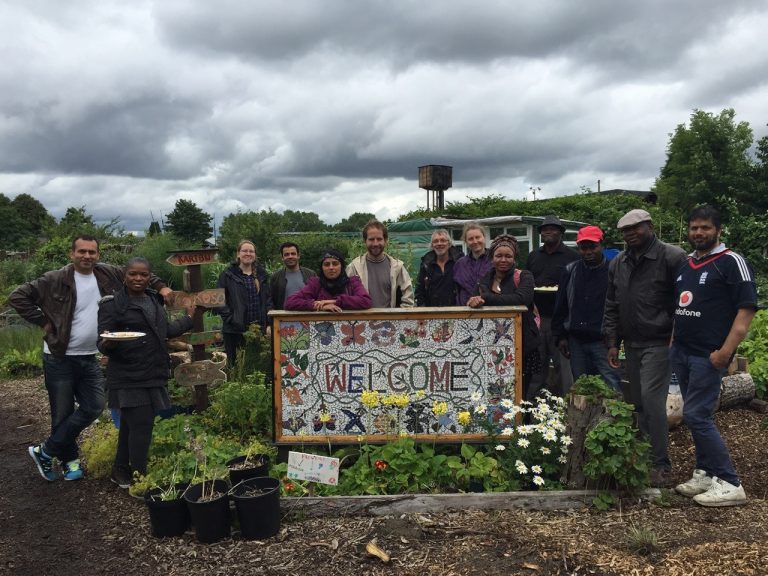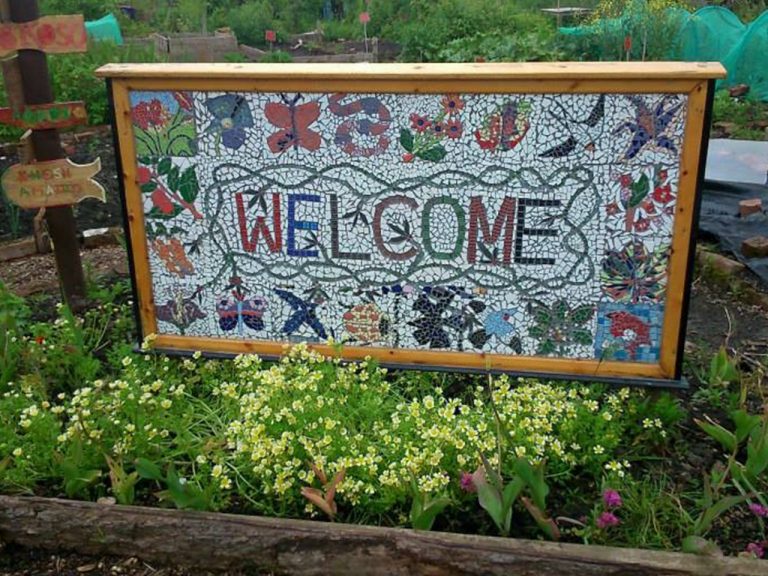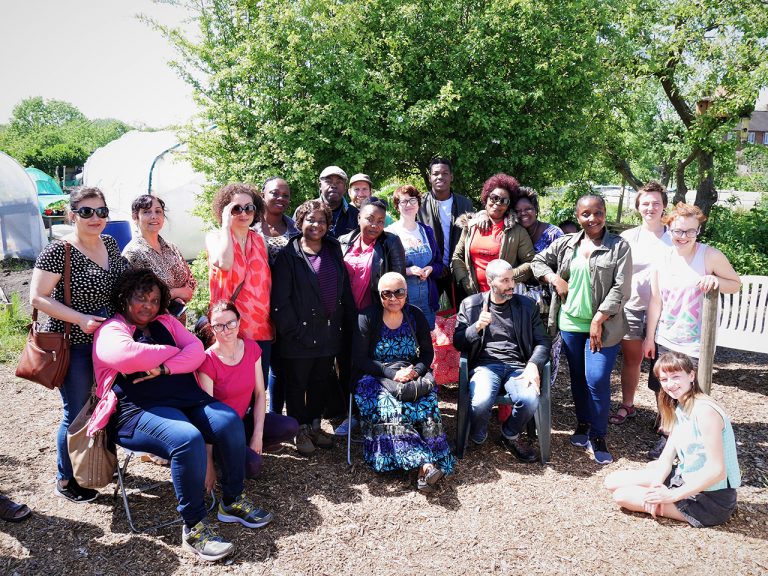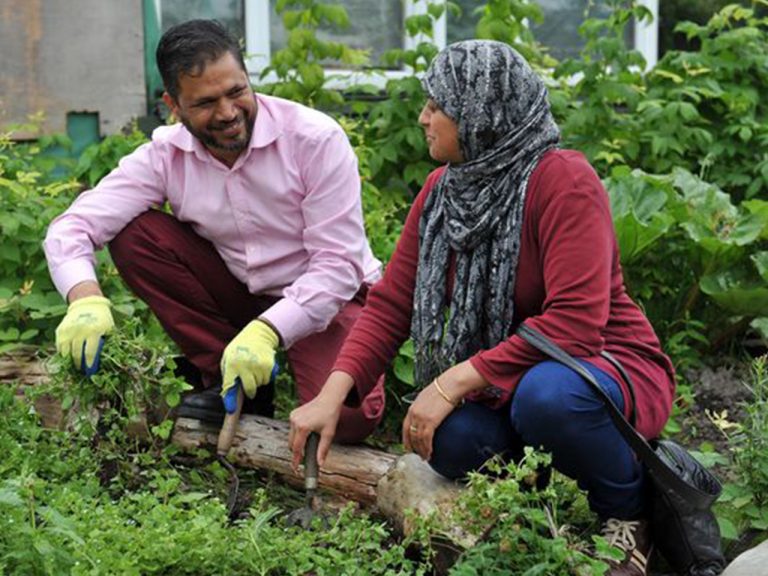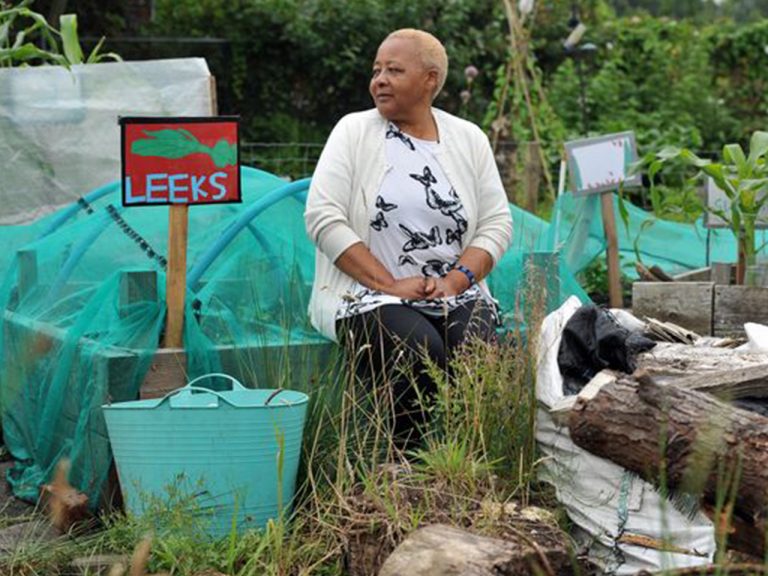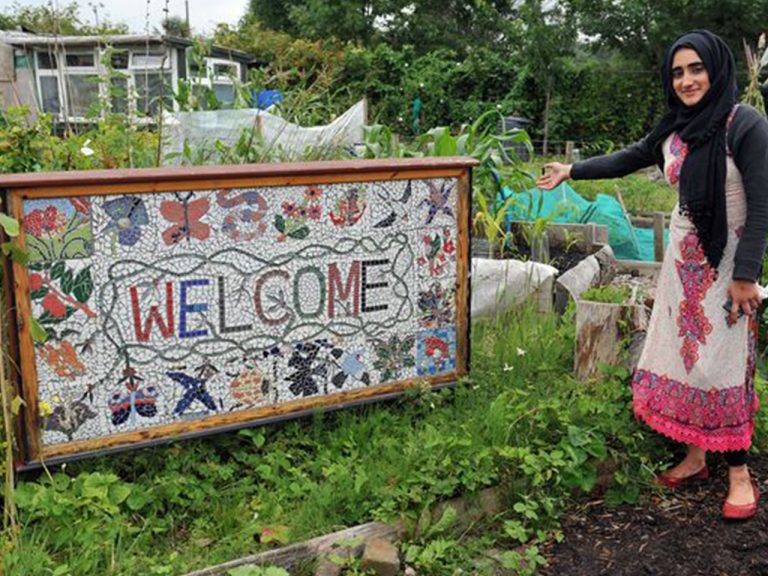Introduction
Growing Together Levenshulme is a small garden developed by a group of friends on an allotment site in Manchester, in the North of England. The garden is not open to the public and they run a weekly therapeutic horticulture session for refugees and asylum seekers. The garden is run based on organic, vegan, permaculture principles and is led by a group of volunteers who manage the space, apply for funding and organise activities. Due to the very low incomes that most refugees and asylum seekers has, the group provides bus fares to enable participants to reach the garden and attend sessions.
As part of each session the volunteers and participants prepare a large communal lunch, often using produce from the garden, and all share this meal together.

 English
English  Deutsch
Deutsch  Español
Español  Svenska
Svenska 